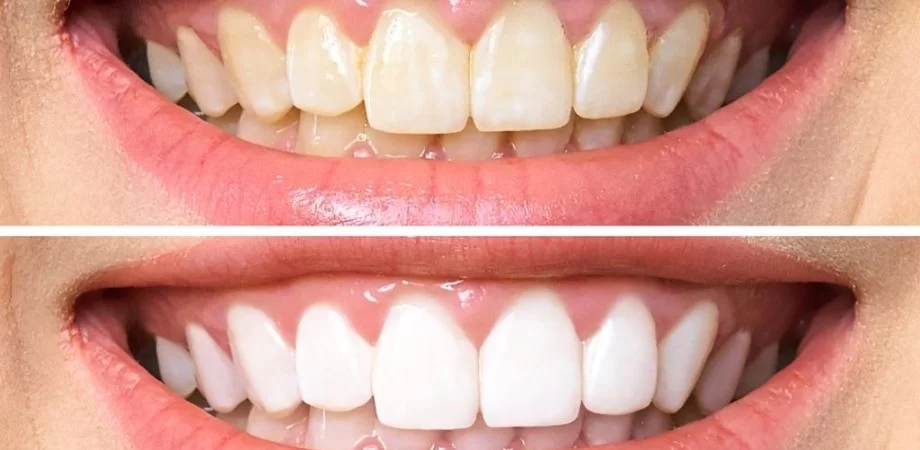
Do Dentists Bleach Teeth? Everything You Need to Know About Teeth Whitening
When I decided it was time to brighten my smile, I found myself wondering, “Do dentists actually bleach teeth?” I had heard so much about at-home teeth whitening products, and there were plenty of ads for over-the-counter strips and gels. But nothing compared to the idea of professional treatment, especially when it came to achieving those gleaming, Hollywood-like teeth. As someone who has struggled with yellowing and stains over the years, I wanted to know whether professional whitening by a dentist was the right way to go. Here’s what I learned about teeth whitening, the process involved, and whether or not dentists bleach teeth.
1. What Does Teeth Bleaching or Whitening Mean?
Before diving into whether or not dentists bleach teeth, I realized that I needed to understand the basics of teeth whitening and bleaching. Simply put, teeth whitening and bleaching are terms used to describe the process of making your teeth appear whiter by removing stains or discoloration. There are a few different ways this can be done, from at-home treatments to professional procedures done by your dentist.
When people refer to “teeth bleaching,” they typically mean using a stronger bleaching agent, often containing hydrogen peroxide or carbamide peroxide. This treatment can help to break down deeper stains that can’t be removed by regular brushing. On the other hand, “teeth whitening” can refer to more general treatments that help remove surface stains, such as those caused by coffee or wine.
2. Do Dentists Bleach Teeth? Yes, and Here’s How
The short answer to the question, “Do dentists bleach teeth?” is yes, they do. However, it’s important to note that the process dentists use is more controlled, professional, and tailored to each individual’s needs. Unlike over-the-counter products, which may offer only limited results, professional whitening treatments from your dentist can give you quicker and more effective results.
Here’s how the process typically works when a dentist bleaches your teeth:
- Initial Consultation: Before the whitening procedure, your dentist will examine your teeth to ensure that they are healthy enough for whitening. They’ll check for any cavities or gum disease that could make the treatment unsafe. They might also discuss your goals to determine the level of whitening that is right for you.
- Teeth Preparation: If necessary, the dentist will clean your teeth to remove any plaque or tartar buildup, as this can interfere with the bleaching process. The cleaning also helps the whitening agents work more effectively.
- Application of Whitening Gel: The dentist will apply a professional-grade whitening gel that contains hydrogen peroxide or carbamide peroxide. This gel is stronger than over-the-counter products, and the dentist may use a special light to enhance the effect of the gel. The gel works by breaking down the molecules in the stains, making your teeth appear significantly whiter.
- Rinsing and Final Touches: After the whitening gel has been applied and left on for a period of time (usually around 30 minutes to an hour), the dentist will rinse it off and evaluate the results. If necessary, they may apply additional whitening treatments to achieve the desired level of whiteness.
- Follow-up Care: Your dentist will provide instructions on how to care for your teeth post-treatment. This may include avoiding certain foods or beverages that can stain your teeth, as well as offering touch-up treatments if necessary.
In addition to in-office treatments, some dentists also offer take-home kits that use custom-fitted trays and professional-strength bleaching gel. These are great for people who want to maintain the results of their in-office treatment over time or for those who prefer a more gradual whitening approach.
3. Is Dentist Whitening Better Than At-Home Treatments?
One of the main questions I had when considering professional teeth whitening was whether it was worth the cost compared to the at-home products I had seen in stores. While there are many effective at-home whitening products, I found that professional whitening from a dentist has several advantages:
- Stronger Whitening Agents: Professional whitening treatments use stronger whitening agents than what you can find in over-the-counter products. This means that dentists can achieve more dramatic results in a shorter period of time.
- Customization: With a dentist, the whitening process is customized to fit your teeth’s needs. Dentists can adjust the strength of the whitening agent and the length of the treatment to provide optimal results for your teeth and the level of discoloration.
- Safety: When you get teeth whitening from a dentist, you’re under the supervision of a trained professional who ensures that the treatment is done safely. At-home products, especially those purchased online, can sometimes cause damage to your teeth or gums if not used correctly.
- Longer-Lasting Results: Because professional treatments use stronger agents and are more tailored to your individual needs, the results tend to last longer. With at-home treatments, you might need frequent touch-ups to maintain the results.
While at-home teeth whitening can be a good option for maintaining your smile, if you want to achieve quicker, more noticeable results, a professional whitening treatment from your dentist is the way to go.
4. Are There Any Risks to Teeth Bleaching?
As with any cosmetic procedure, there are some risks to consider with teeth bleaching. That said, when done by a professional, teeth whitening is generally safe. Here are a few potential risks to be aware of:
- Tooth Sensitivity: After whitening, some people may experience tooth sensitivity, especially when consuming hot or cold foods and drinks. This sensitivity typically goes away within a few days after the treatment.
- Gum Irritation: Some people may experience slight irritation of the gums or soft tissues in the mouth. Dentists usually protect the gums during the whitening procedure, but it’s still possible to experience minor irritation.
- Overuse: If whitening treatments are overused, they could lead to damage to the enamel or gum tissue. It’s important to follow your dentist’s instructions and not to overdo it with whitening treatments.
Overall, these risks are minimal when you get teeth whitening from a professional who follows proper techniques. Your dentist will also provide aftercare instructions to help reduce any discomfort or sensitivity following the procedure.
5. How Long Does Teeth Whitening Last?
Teeth whitening results can last anywhere from six months to a couple of years, depending on several factors, including your diet, oral hygiene habits, and whether you smoke. Foods and drinks like coffee, tea, red wine, and berries can stain your teeth over time, which is why it’s important to maintain good oral hygiene and avoid overly staining foods if you want to keep your smile bright for as long as possible.
My dentist recommended regular touch-ups every six months to a year to maintain the results. He also suggested using a whitening toothpaste to keep my teeth looking their best in between professional treatments.
6. Should You Get Professional Teeth Whitening?
If you’re considering whitening your teeth and want to achieve noticeable results with minimal risk, professional teeth whitening with a dentist is an excellent choice. While it may cost more than over-the-counter products, the benefits—stronger whitening agents, faster results, and a safer experience—make it worth the investment for many people. Plus, having a dentist guide you through the process ensures that you’re using the best possible method to get the results you want without risking damage to your teeth or gums.







 Cicero Dental Center4.0 (222 review)
Cicero Dental Center4.0 (222 review) Long Grove Dental5.0 (1022 review)
Long Grove Dental5.0 (1022 review) Coast Dental4.0 (440 review)
Coast Dental4.0 (440 review) Patricia Pasnikowska DDS5.0 (105 review)
Patricia Pasnikowska DDS5.0 (105 review) Children Dental World4.0 (1512 review)
Children Dental World4.0 (1512 review) Excelsior Family Dental PLLC5.0 (304 review)
Excelsior Family Dental PLLC5.0 (304 review) The Importance of Oral Health Education During Pregnancy for a Healthy Pregnancy
The Importance of Oral Health Education During Pregnancy for a Healthy Pregnancy Best Tips for Brushing Your Teeth Properly for Healthy Gums: Essential Techniques for Oral Health
Best Tips for Brushing Your Teeth Properly for Healthy Gums: Essential Techniques for Oral Health Why Skipping Dental Checkups Can Lead to Bigger Oral Health Problems
Why Skipping Dental Checkups Can Lead to Bigger Oral Health Problems Advantages of Porcelain Dental Restorations
Advantages of Porcelain Dental Restorations How Can Diabetes Cause Tooth and Gum Problems? Preventing and Managing Oral Health Issues
How Can Diabetes Cause Tooth and Gum Problems? Preventing and Managing Oral Health Issues Healthy Habits for Promoting Good Oral Health and Hygiene: Tips for a Healthy Smile
Healthy Habits for Promoting Good Oral Health and Hygiene: Tips for a Healthy Smile